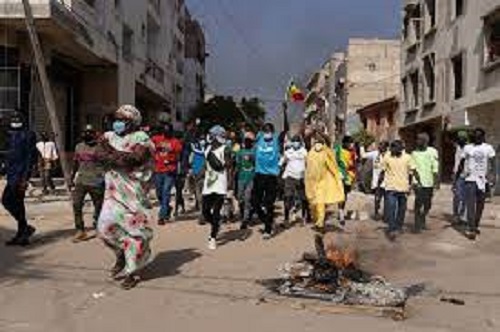This post has already been read 2921 times!
The Senegalese authorities have suspended mobile internet and banned a march protesting the delay of this month’s presidential election. The move follows violent protests that erupted after President Macky Sall postponed the February 25 vote. The United Nations has expressed concern over the situation, calling on the authorities to uphold democracy and respect for human rights. At least three people have been killed and 266 others, including journalists, have been reportedly arrested.
The Aar Sunu Election (Let’s protect our election) collective had organised a peaceful rally in the capital, Dakar, but it was banned due to concerns over traffic disruption. Mobile internet access has also been suspended for the second time this month due to the dissemination of “subversive hate messages” on social networks. Both the suspension of internet access and the ban on protests have been criticised by rights activists.
President Sall postponed the election due to disputes over the disqualification of potential candidates and fears of a return to unrest witnessed in 2021 and 2023. The decision was approved by parliament after security forces stormed the building and removed opposition lawmakers who opposed the bill. This has been viewed by the opposition as a “constitutional coup” and an attempt to extend Sall’s time in office, despite his assurances that he will not stand for re-election.
President Sall is now seeking a way to resolve the turmoil and has raised the possibility of dialogue with the opposition, including anti-establishment figure Ousmane Sonko. Reports have suggested the possibility of an amnesty for Sonko and others detained during previous periods of unrest. However, it is unclear whether such a proposal will be accepted and what it means for the future of the opposition figures involved.



